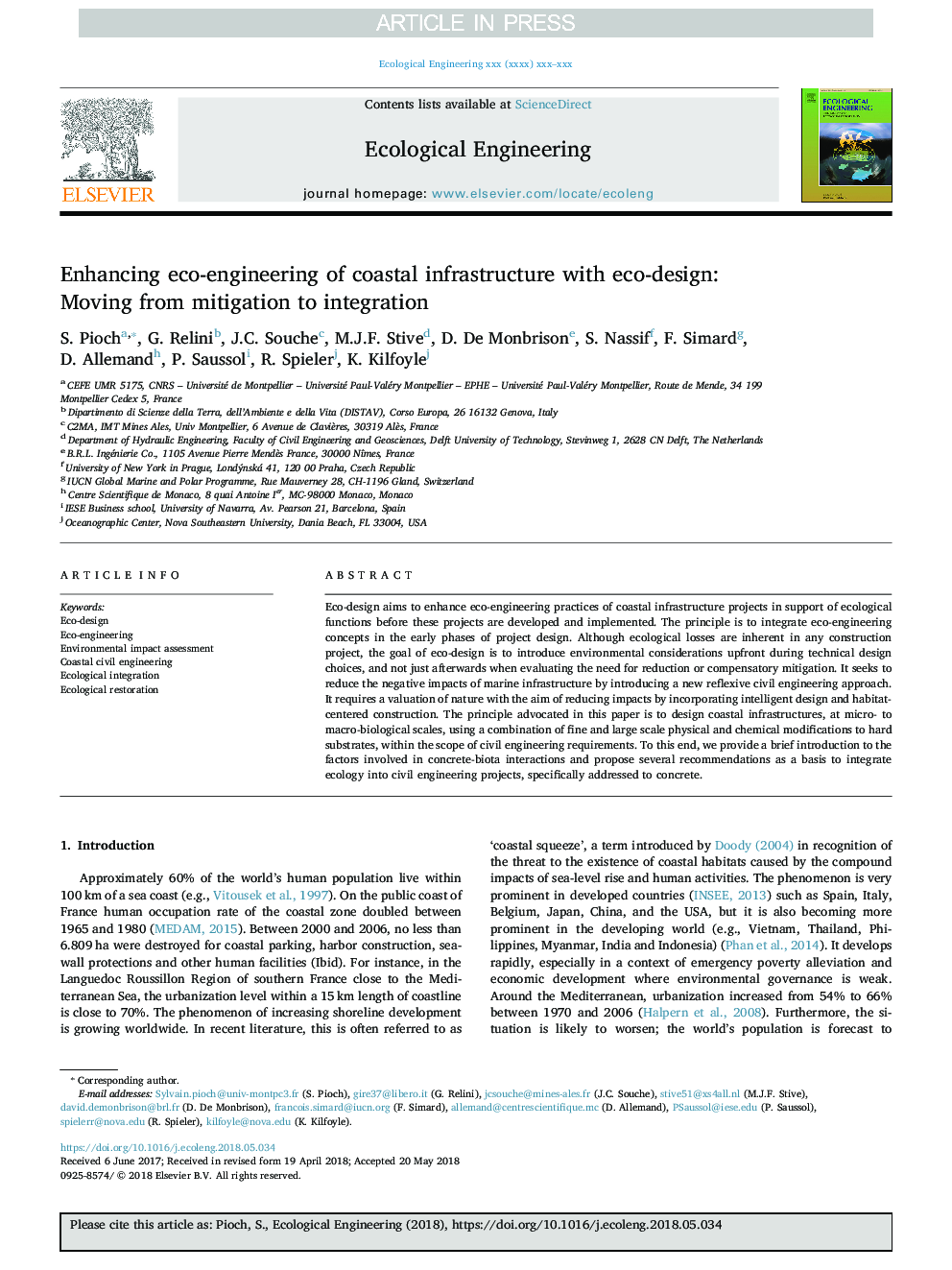| Article ID | Journal | Published Year | Pages | File Type |
|---|---|---|---|---|
| 10110138 | Ecological Engineering | 2018 | 11 Pages |
Abstract
Eco-design aims to enhance eco-engineering practices of coastal infrastructure projects in support of ecological functions before these projects are developed and implemented. The principle is to integrate eco-engineering concepts in the early phases of project design. Although ecological losses are inherent in any construction project, the goal of eco-design is to introduce environmental considerations upfront during technical design choices, and not just afterwards when evaluating the need for reduction or compensatory mitigation. It seeks to reduce the negative impacts of marine infrastructure by introducing a new reflexive civil engineering approach. It requires a valuation of nature with the aim of reducing impacts by incorporating intelligent design and habitat-centered construction. The principle advocated in this paper is to design coastal infrastructures, at micro- to macro-biological scales, using a combination of fine and large scale physical and chemical modifications to hard substrates, within the scope of civil engineering requirements. To this end, we provide a brief introduction to the factors involved in concrete-biota interactions and propose several recommendations as a basis to integrate ecology into civil engineering projects, specifically addressed to concrete.
Related Topics
Life Sciences
Agricultural and Biological Sciences
Ecology, Evolution, Behavior and Systematics
Authors
S. Pioch, G. Relini, J.C. Souche, M.J.F. Stive, D. De Monbrison, S. Nassif, F. Simard, D. Allemand, P. Saussol, R. Spieler, K. Kilfoyle,
